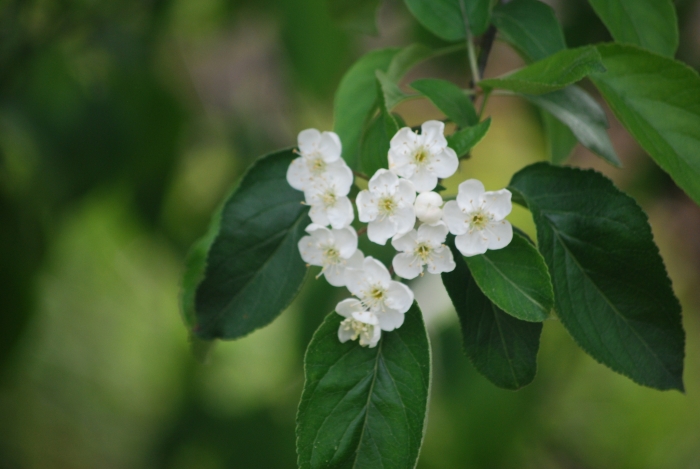Oregon Crab Apple
(Malus fusca)
Oregon Crab Apple (Malus fusca)
/
/

By Geoffrey Carter no rights reserved
Public Domain
Image By:
By Geoffrey Carter no rights reserved
Recorded By:
Copyright:
Public Domain
Copyright Notice:
Photo by: By Geoffrey Carter no rights reserved | License Type: Public Domain | License URL: http://creativecommons.org/publicdomain/zero/1.0/ | Uploader: gcart043 | Publisher: iNaturalist |














































Estimated Native Range
Summary
Malus fusca, commonly known as Oregon Crab Apple or Pacific Crabapple, is a deciduous tree native to the cool temperate rainforests, wetlands, and streambanks of the Pacific Northwest, including coastal regions from Alaska to California. It typically grows up to 13 meters (43 feet) tall, with a trunk diameter of 20–25 centimeters (8–10 inches). The tree’s appearance is characterized by a rounded to irregular crown, with white to pale pink flowers that bloom in spring and are moderately showy. The small, apple-shaped pomes are about 2 cm long, transitioning in color from red to yellow-green as they mature. The bark is gray and can become scaly with age.
The Pacific Crabapple is valued for its wildlife support, providing food for birds and mammals. Its spring flowers and colorful fruit make it an attractive choice for ornamental use in parks and gardens. The tree is also known for its longevity, often living over a century. While it prefers full sun, it can tolerate partial shade and requires medium amounts of water. It is adaptable to a range of soil types, provided they have good drainage. The fruit’s high pectin content makes it useful for culinary purposes, such as enhancing the gelling of jams and jellies made from other fruits. Additionally, the bark has been used traditionally for medicinal purposes. However, gardeners should be aware that the tree can be susceptible to apple scab and other fungal diseases, and may attract pests such as aphids.CC BY-SA 4.0
The Pacific Crabapple is valued for its wildlife support, providing food for birds and mammals. Its spring flowers and colorful fruit make it an attractive choice for ornamental use in parks and gardens. The tree is also known for its longevity, often living over a century. While it prefers full sun, it can tolerate partial shade and requires medium amounts of water. It is adaptable to a range of soil types, provided they have good drainage. The fruit’s high pectin content makes it useful for culinary purposes, such as enhancing the gelling of jams and jellies made from other fruits. Additionally, the bark has been used traditionally for medicinal purposes. However, gardeners should be aware that the tree can be susceptible to apple scab and other fungal diseases, and may attract pests such as aphids.CC BY-SA 4.0
Plant Description
- Plant Type: Tree, Shrub
- Height: 30-40 feet
- Width: 20-25 feet
- Growth Rate: Slow
- Flower Color: Pink, White
- Flowering Season: Spring
- Leaf Retention: Deciduous
Growth Requirements
- Sun: Full Sun, Part Shade
- Water: Medium
- Drainage: Fast, Medium
Common Uses
Bee Garden, Bird Garden, Butterfly Garden, Edible*Disclaimer: Easyscape's listed plant edibility is for informational use. Always verify the safety and proper identification of any plant before consumption., Hummingbird Garden, Low Maintenance, Showy Flowers, Water Garden
Natural Habitat
Cool temperate rainforests, wetlands, and streambanks of the Pacific Northwest
Other Names
Common Names: Pacific Crabapple
Scientific Names: , Malus fusca, Pyrus fusca, Sinomalus fusca, Malus diversifolia, Pyrus rivularis, Pyrus diversifolia, Malus rivularis, Malus baccata subsp. fusca, Malus fusca var. diversifolia
GBIF Accepted Name: Sinomalus fusca (Raf.) Rushforth